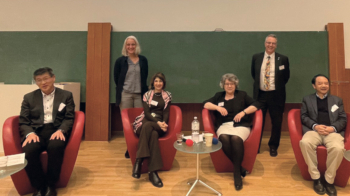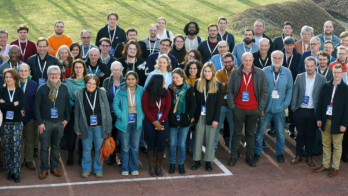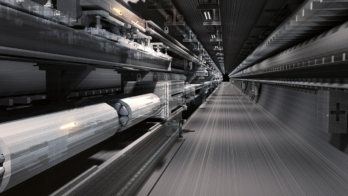
Serbia became the 23rd Member State of CERN, on 24 March, following receipt of formal notification from UNESCO. Ever since the early days of CERN (former Yugoslavia was one of the 12 founding Member States of CERN in 1954, until its departure in 1961), the Serbian scientific community has made strong contributions to CERN’s projects. This includes at the Synchrocyclotron, Proton Synchrotron and Super Proton Synchrotron facilities. In the 1980s and 1990s, physicists from Serbia worked on the DELPHI experiment at CERN’s LEP collider. In 2001, CERN and Serbia concluded an International Cooperation Agreement, leading to Serbia’s participation in the ATLAS and CMS experiments at the LHC, in the Worldwide LHC Computing Grid, as well as in the ACE and NA61 experiments. Serbia’s main involvement with CERN today is in the ATLAS and CMS experiments, in the ISOLDE facility, and on design studies for future particle colliders – FCC and CLIC – both of which are potentially new flagship projects at CERN.
Serbia was an Associate Member in the pre-stage to membership from March 2012. As a Member State, Serbia will have voting rights in the CERN Council, while the new status will also enhance the recruitment opportunities for Serbian nationals at CERN and for Serbian industry to bid for CERN contracts. “Investing in scientific research is important for the development of our economy and CERN is one of the most important scientific institutions today,” says Ana Brnabić, Prime Minister of Serbia. “I am immensely proud that Serbia has become a fully-fledged CERN Member State. This will bring new possibilities for our scientists and industry to work in cooperation with CERN and fellow CERN Member States.”





